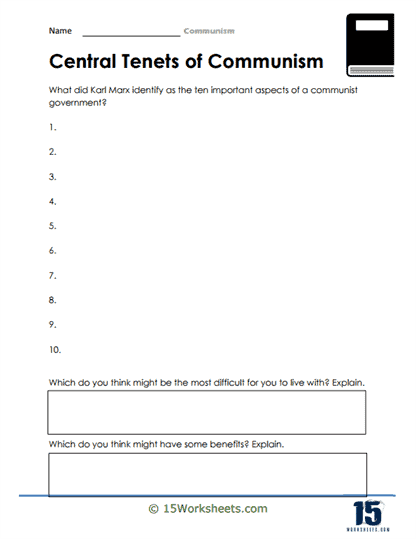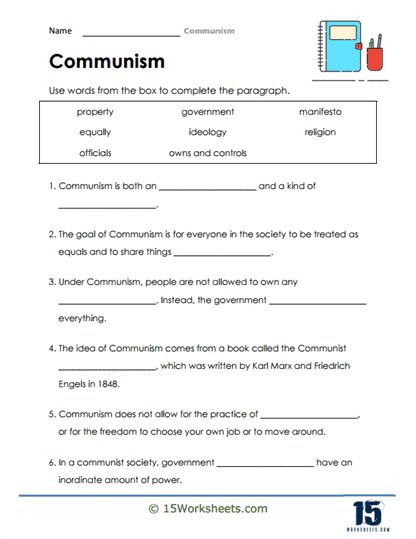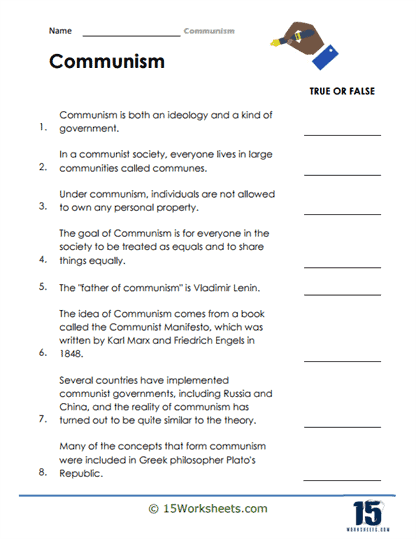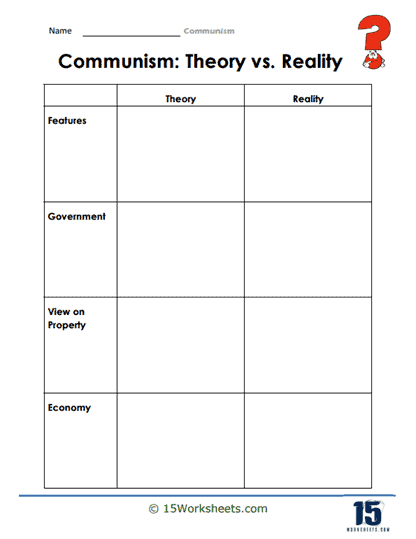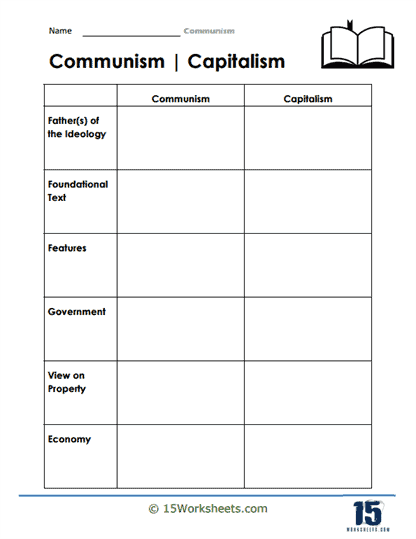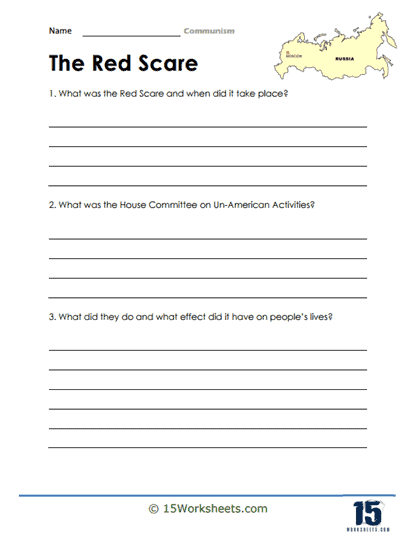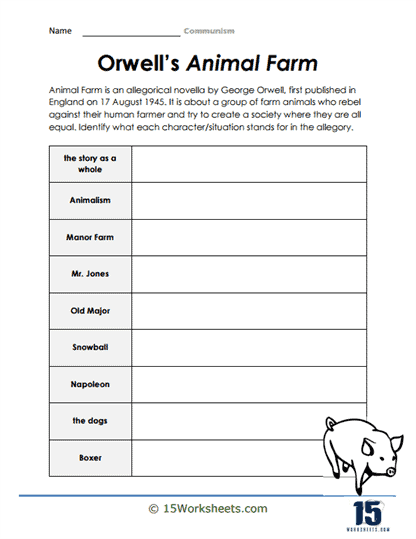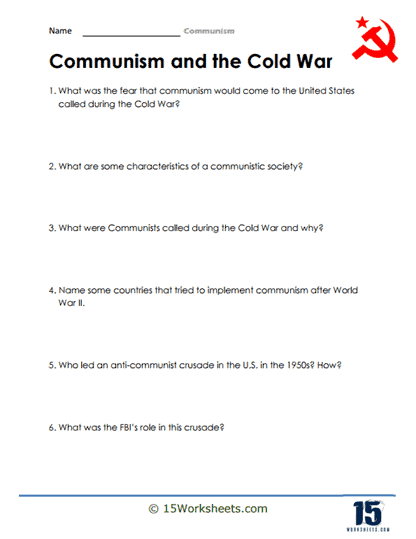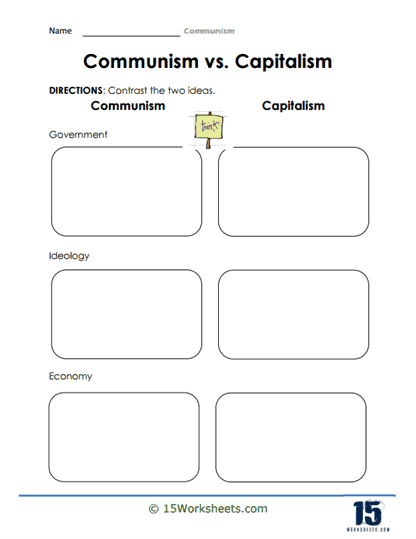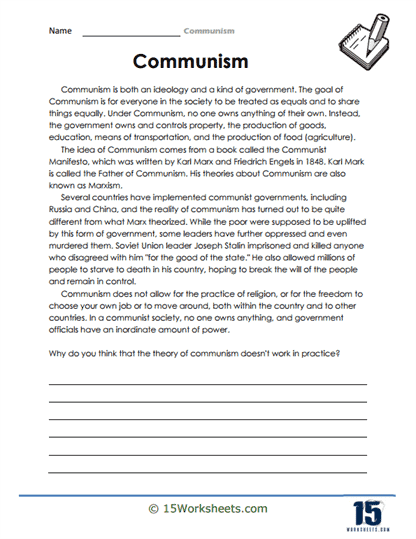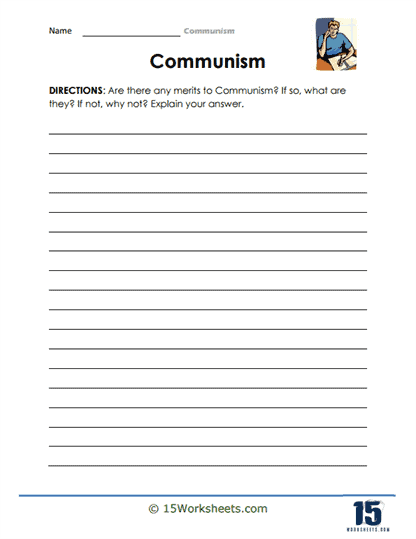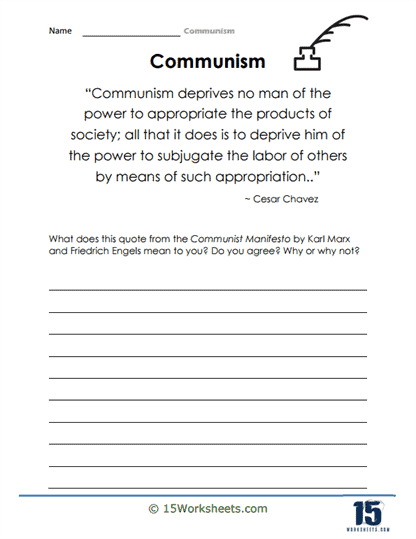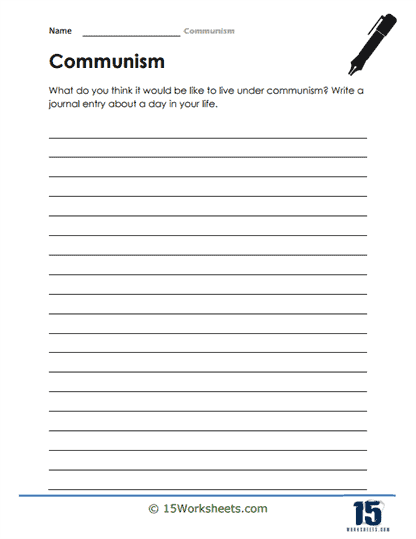Communism Worksheets
All About These 15 Worksheets
Students go on a thought-provoking exploration of communism with this comprehensive series of 15 worksheets. This collection is designed to introduce students to the history, principles, and impact of communism on societies around the world. Through various activities and thought-provoking exercises, students will gain a deeper understanding of the ideology, its implementation, and its effects on political, economic, and social systems. Through these worksheets, students will:
- Learn all about Communist Russia and China and be familiar with their similarities and differences;
- Enumerate the Central Tenets of Communism;
- Compare communism with capitalism;
- Study Orwell’s Animal Farm and identify what the different characters stand for;
- Examine the key ideas presented in Marx’s The Communist Manifesto, including the class struggle, the abolition of private property, and the vision of a classless society;
- And explore the impact of communism on various aspects of society.
Engaging with this series of worksheets will empower students to critically analyze the principles and effects of communism, fostering a deeper understanding of its historical context and its impact on societies. Through engaging activities and thought-provoking exercises, students will develop critical thinking skills, historical empathy, and a greater appreciation for the complexities of political ideologies. Overall, this series aims to encourage students to explore diverse perspectives, engage in informed discussions, and develop a well-rounded understanding of the world they live in.
What is Communism?
Communism is a political, social, and economic ideology that aims to establish a classless, stateless society where the means of production, distribution, and exchange are owned and controlled collectively by the community as a whole. It is based on the principle of common ownership, with the ultimate goal of eliminating social classes, private property, and wealth inequality. The theory of communism was developed by German philosophers Karl Marx and Friedrich Engels in the 19th century, and it has inspired various political movements and governments throughout the 20th and 21st centuries.
The Pros and Cons of Communism
Communism as an ideology has generated much debate and discussion throughout its history. While some argue that it offers a more equitable and just society, others contend that it has led to widespread economic inefficiencies and a lack of individual freedom. Here are some pros and cons of communism:
Pros
- Economic equality: Communism aims to eliminate income and wealth disparities by redistributing resources and ensuring that everyone’s basic needs are met. This can potentially reduce poverty and create a more equitable society.
- Elimination of class struggle: By abolishing private property and social classes, communism seeks to end class struggle and create a society in which everyone works for the common good, rather than for individual gain.
- Social welfare: Under a communist system, the state is responsible for providing essential services, such as healthcare, education, and housing, to all citizens. This can ensure that everyone has access to these services, regardless of their ability to pay.
- Central planning: A centrally planned economy, which is a common feature of communist systems, can theoretically allocate resources more efficiently and effectively than market-based economies, leading to less waste and more stability.
- Reduced unemployment: In a communist system, the government can provide jobs for everyone, leading to lower unemployment rates and increased economic security for citizens.
Cons
- Lack of incentives: The absence of private property and the focus on collective ownership can reduce individual incentives to work hard or innovate, as the rewards for success are shared among the community rather than enjoyed by the individual.
- Economic inefficiencies: Central planning has often led to misallocation of resources, production of low-quality goods, and lack of innovation. This can result in reduced productivity and economic stagnation.
- Bureaucracy and corruption: Centralized control of the economy and the absence of private enterprise can lead to a bloated bureaucracy, inefficiency, and corruption, as decision-making becomes concentrated in the hands of a few government officials.
- Suppression of individual freedom: Many communist states have had a history of suppressing individual freedoms, including freedom of speech, assembly, and religion. This can lead to a lack of political diversity and a stifling of dissenting voices.
- Authoritarianism: In practice, many communist governments have become authoritarian or totalitarian, with a single party controlling all aspects of political, economic, and social life. This concentration of power can result in abuses of authority and a lack of accountability.
It is important to note that these pros and cons are not inherent to the communist ideology itself, but rather reflect the ways in which communism has been implemented in various historical and political contexts. The outcomes of adopting communist principles can vary widely depending on factors such as cultural values, leadership, and historical circumstances.


